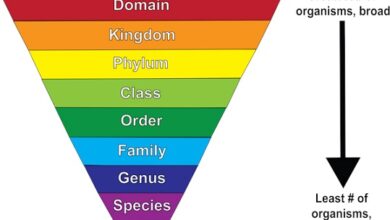What is Ethics types with Difference between ethics and morals
Ethics
Ethics is the area of philosophy dedicated to human actions and behavior, moral philosophy . The object of study are the principles that guide human actions and the ability to evaluate these actions.
Ethics and morals differ because ethics is understood universally, while morality is always linked to social and cultural factors that influence behavior.
Briefly, ethics is a theory that deals with the principles that guide actions, while morality is practical and is related to rules of conduct.
The word is derived from the Greek ethos , which means, “habit”, “behavior”, “way of being”.
It covers a wide area and can be applied to the professional aspect. There are codes of professional ethics that indicate the fundamental principles that guide a profession.
It cannot be confused with the law, although the law is based on ethical principles, ethics is not normative like the laws. Codes of ethics have guidelines and their non-compliance may be subject to sanctions, but they are not considered crimes.
How did ethics come about?
The term emerged in Ancient Greece, already linked to philosophy. At the time, philosophers made a great deal of reflection on respect for the rules of social interaction and tried to understand the regime of human behavior. For them, the study of ethics was a way to achieve happiness and “good living”.
Back in the Middle Ages, between the 16th and 18th centuries, the discussion on ethics was resumed. However, the bases would make a transition from religious thought, Christianity and Islam, to human thought and its means of achieving good social coexistence.
What are the types of ethics?
Metaethics: strand that studies the nature of the concept and seeks to understand what ethics is . Furthermore, metaethics tries to analyze the true moral values of words like: good, bad, right or wrong. Finally, she investigates what ethical principles are, where they come from and what is the point of using them.
Normative ethics: study of ethical action , based on what is morally right and wrong. There are three theories within normative ethics : the deontological (focused on action/duty), the teleological (focused on results) and ethical virtues . Normative ethics involves systematizing, defending, and recommending concepts of what is right and wrong in practice.
Comparative ethics: the description and explanation of the moral attitudes and ethical norms of each society. It deals with the investigation of the diverse ethical beliefs of diverse groups around the world, and is an approach used to describe how people act in accordance with their morals.
Applied ethics: nothing more than ethics in practice on a daily basis. This type of branch deals with specific fields, that is, it has several other subdivisions that dictate right and wrong within specific frameworks of reality. Examples: professional ethics , environmental ethics , medical, business, journalistic and bioethics .
How does ethics influence the lives of human beings?
All human behavior is guided by a set of judgments (judgments) that determine its interpretation of reality and the value of actions.
Thus, human beings are able to act and, above all, evaluate these actions according to a set of culturally constructed values, which determine, in short, what is right and what is wrong.
Thus, it is responsible for building a knowledge tool to understand these sets of values.
Finally, the judgment of values, the basis of morality, is socially developed and acts directly in everyday life.
Morality as a set of rules that determine human behavior in a given historical period and ethics as the revision of these moral bases and a projection of what is intended to be achieved.
Difference between ethics and morals
Ethics and morals are related topics, but they are different . This is because morality is based on obedience to cultural, hierarchical or religious norms, customs or commandments. Ethics, on the other hand, seeks to base the way of living through human thought.
It is not limited to morality, which is generally understood as custom or habit, but seeks the theoretical foundation to find the best way to live and act in the world.
Many important philosophers studied and defined ethics. For Aristotle , for example, all practical rationality aims at an end or a good and ethics aims to establish the supreme purpose that is above and justifies all others, and what is the way to achieve it.
This supreme end, for Aristotle, is happiness. It is not about pleasures, riches, honors, but about a virtuous life, and this virtue is found between extremes and is only achieved by someone who demonstrates prudence (known as the just measure).
Three key thinkers to understand ethics
Since antiquity, philosophers, scholars and thinkers have tried to understand and analyze the principles and values of a society and how they occur in practice.
We can cite several thinkers, who at different times reflected on ethics. The pre-Socratics, the sophists, Plato, Socrates, the Stoics, the Christian thinkers, Spinoza, Nietzsche, among others, dedicated themselves to the theme.
Of these thinkers, we highlight Aristotle, Machiavelli and Kant, as each represents a turning point in relation to the production of the theme.
1. Aristotle
With the passage from the naturalist philosophy of the pre-Socratic period to the anthropological philosophy marked by Socrates, knowledge turns to the understanding of human relationships.
Thus, Aristotle (384 BC – 322 BC) brings advances to the development of ethics as an area of knowledge.
The philosopher sought to investigate the principles that guide actions and what a virtuous life would be.
In his Nicomachean Ethics , Aristotle writes about his understanding of virtue and the purpose of life, happiness.
Aristotle understands that ethics can be taught and exercised and the construction of a path that leads to the greater good, identified as happiness, depends on it.
For this, actions must be based on the greatest of virtues and the basis for all others, prudence.
2. Machiavelli
Niccolo Machiavelli (1469-1527), in his work The Prince , was responsible for dissociating the ethics of individuals from the ethics of the State.
For Machiavelli, the state is organized and operates from its own logic. Thus, the author creates a distinction between moral virtue and political virtue.
This thought represented a very relevant change in relation to the tradition of the Middle Ages, which was strongly based on Christian morality, associating government with a divine determination.
3. Kant
Immanuel Kant sought to elaborate an ethical model in which reason is the primordial foundation. With this, the author contradicted the tradition that understood religion and the figure of God, as the supreme principle of morality.
Kant, in his book Groundwork for the Metaphysics of Morals , states that examples serve only as a stimulus, thus, ethical models cannot be created based on the classification of some desired behaviors or behaviors that should be avoided.
For the philosopher, reason is responsible for governing the will and guiding actions, without harming the idea of freedom and autonomy, typical of human beings.
Kant finds in autonomy and reason, the source of duty and a fundamental ethical principle, capable of understanding and formulating rules for itself.
The categorical imperative proposed by Kant is the synthesis of the rational operation capable of guiding human actions through order (imperative):
He acts in such a way that the maxim of his action can be taken as a universal maxim.



